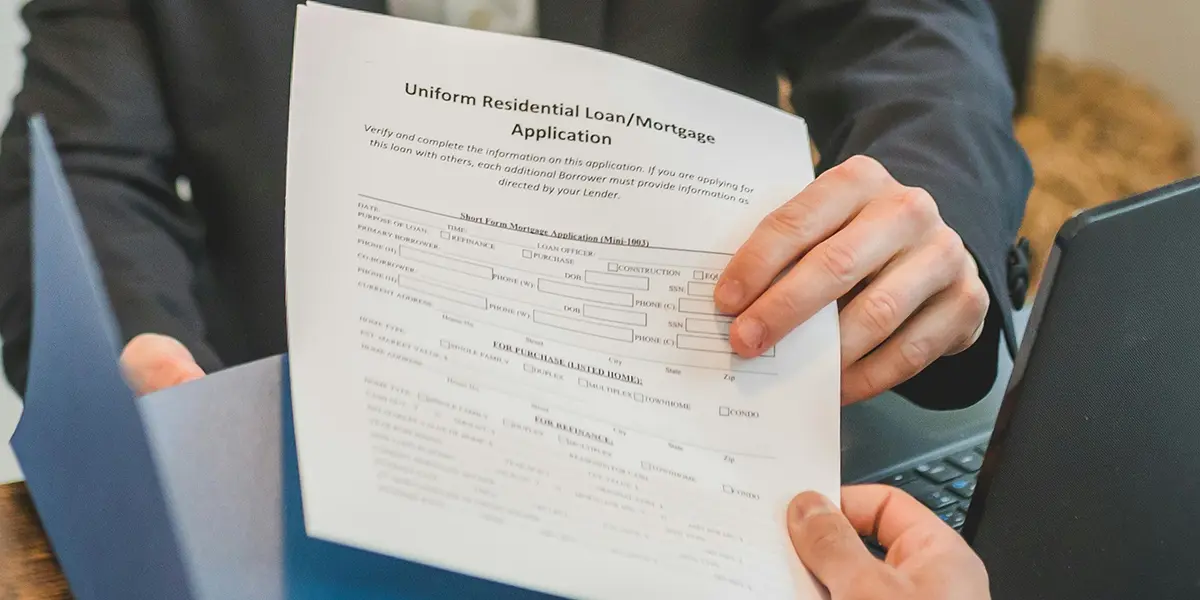You want to buy a house in Cyprus and need a loan. Mortgages are a popular choice for both residents and foreign investors. Around 70% of property purchases in Cyprus are made by locals, while 30% are by international buyers drawn to the island’s sunny weather, stunning coastline, and vibrant real estate market. Investing in a holiday home or a long-term property is a significant step, and understanding how to get a mortgage in Cyprus is essential.
This guide will walk you through the entire Cyprus home financing process, from selecting the right loan to securing approval. Thus, you can turn your property ownership dreams into reality.
Understanding the Mortgage Process in Cyprus

Let’s say you’re looking to buy a one-bedroom apartment in Limassol, where prices average around €250,000. For most people, paying this amount upfront is challenging, so mortgages are a practical solution. A mortgage in Cyprus is a loan from Cypriot banks that allows you to purchase a property by paying in installments over several years.
In Cyprus, banks typically offer mortgages for up to 70% of the real estate cost to foreign buyers and up to 80% for residents. This means that if you’re buying an apartment worth €250,000, you’d need to provide a down payment of €50,000–€75,000, depending on your status as a resident or foreigner. The bank finances the rest, which you repay monthly over an agreed term — usually 10 to 30 years. If you’re still considering whether buying with a mortgage is the right move, this article compares renting versus buying to help you decide.
Types of Mortgages in Cyprus
There are two main types of mortgages in Cyprus you’ll encounter:
- Fixed-rate mortgages lock in your interest rate for the whole loan, making your monthly payments steady and easy to plan. If you’re planning to use a mortgage for long-term stays or holiday rentals, this guide to vacation property investing offers useful insights. For example, if you agree to repay €1,200 monthly, this amount won’t change.
- Variable-rate mortgages: The interest rate goes up and down depending on the market, so your payments might go lower when rates drop but could rise if rates go up.
Types of mortgages in the USA can offer many additional loans, such as FHA or VA loans, for eligible residents. However, in Cyprus, the focus is generally on straightforward, conventional mortgages with fewer government-backed options.

Who Decides and Who Participates in the Mortgage Process?
Getting a home loan in Cyprus includes working with a few important players:
- You, the buyer: You are responsible for providing all required documents, such as proof of income, credit history, and bank statements, and meeting the bank’s criteria.
- The bank: Cypriot banks, such as Bank of Cyprus or Hellenic Bank, are the decision-makers. They assess your financial situation, evaluate the property’s value, and decide whether to approve your mortgage application.
- Real estate agents: These professionals help you find the right property and ensure smooth communication between you and the bank.
- Legal advisors: Lawyers or legal experts assist with paperwork, ensuring compliance with Cyprus property laws and protecting your interests.
By working with these parties, you can navigate the mortgage process confidently and move closer to owning your dream property in Cyprus.
Can you skip the lawyers? You can skip the lawyers if you'd prefer to handle things directly with the bank. The bank will still require you to provide all necessary documents, and you can manage the paperwork yourself. However, knowing the legal aspects of property ownership in Cyprus is essential.
How to Get Pre-Approved for a Mortgage in Cyprus

Obtaining mortgage pre-approval is a key initial move in the mortgage application process when looking for Cyprus property loans. Pre-approval means the bank will assess your financial situation and give you a conditional agreement on how much they are willing to lend you. Here’s a straightforward overview of the process:
1. Prepare Your Documentation
The first step is to gather the required documents. These papers let the bank evaluate your finances. The criteria may vary slightly for residents and expats.
| Document | For Residents | For Expats |
| Identification | Cyprus ID card or passport (for EU citizens) | Passport and visa/residence permit |
| Proof of Income | Payslips, tax returns, or employment contracts | Payslips, tax returns, or employment contracts (translated if needed) |
| Bank Statements | Last 3 months of bank statements | Bank statements from the last 3–6 months (from home country and/or local accounts) |
| Credit History | Credit report from a recognized institution | Credit report from home country (translated if needed) |
| Additional Docs | N/A | Some banks may require long-term residence or work permits in Cyprus |
2. Choose the Right Bank
After preparing your paperwork, the following step is choosing the right bank to apply for your mortgage. There are several Cyprus property loan providers, each offering different mortgage products. It's crucial to explore and compare the banks based on factors such as:
- Interest rates: Some banks may offer fixed or variable rates.
- Repayment terms: You may prefer a loan with repayment options that can be adjusted to fit your financial situation.
- The loan-to-value ratio (LTV) decides how much the bank will lend based on the home's value. Expats typically receive up to 70% of the property value, while residents may receive up to 80%.
Comparison of Cypriot Banks and Mortgage Rates
| Bank | Mortgage Type | Interest Rate (Fixed) | Interest Rate (Variable) | Loan-to-Value (LTV) | Max Loan Term |
| Bank of Cyprus | Home loans, buy-to-let, renovation | 3.00%– 4.00% | 2.50%– 3.50% | Residents: 80%, Expats: 70% | Up to 30 years |
| Hellenic Bank | Home loans, construction | 3.50%– 4.20% | 2.80%– 3.40% | Residents: 80%, Expats: 70% | Up to 25 years |
| Alpha Bank | Fixed & variable rate mortgages | 3.10%– 3.80% | 2.60%– 3.10% | Residents: 80%, Expats: 70% | Up to 30 years |
| Eurobank Cyprus | Home loans, buy-to-let | 3.20%– 4.10% | 2.70%– 3.20% | Residents: 80%, Expats: 70% | Up to 30 years |
Note: Rates may vary based on the loan size, duration, and other variables. Always confirm with the bank for the latest details.
3. Understand Your Budget

Pre-approval will help clarify how much the bank will lend you, defining your property search. When considering your budget, keep in mind:
- Deposit: Most banks require a deposit of around 20–30% of the property value.
- Monthly payments: Calculate how much you can afford monthly repayments without overextending your budget.
- Additional costs: Be sure to factor in taxes, fees, and potential maintenance costs with property ownership.
Pre-approval outlines your affordability, helping you look for homes within your budget.
4. Why Pre-Approval Matters
Getting pre-approved has multiple advantages. It simplifies the mortgage application process and shows sellers you are a verified client. This could give you a better position during negotiations, especially in a competitive property market like Cyprus.
How to Get Approved for a Mortgage in Cyprus
Once you’ve found your dream property, getting full mortgage approval is the next step. Here’s what you’ll need to know and prepare for the process:
- Proof of Income: Banks in Cyprus want to see that you can afford the mortgage. If you're self-employed, you must show stable income, like recent payslips, tax returns, or audited business accounts. For residents, having a stable job is essential, and for expats, your income from abroad will be considered, too.
- Down Payment: Be ready to pay a deposit of 20-30% of the home's market price. For example, if you're buying a property worth €250,000, you’ll need to have €50,000 - €75,000 upfront for the down payment. This is a common requirement from most banks in Cyprus.
- Good Financial Standing: Banks will also look at your credit history. A good credit score (ideally 650+) can increase your chances of approval. If your credit score is below 500, it might be harder to get approved.

How to Speed Up Approval Process
Improving your credit score for mortgage is essential. A higher credit score shows the bank you’re financially responsible, which can lead to faster approval. So, check these fast steps:
- Check your credit report for errors and correct them.
- Pay off debt and keep credit card balances low.
- Make payments on time to show reliability.
For more on your credit report, check out the Cypriot Credit Bureau.
Exploring Cyprus Home Financing Options
When deciding how to get a mortgage in Cyprus, it’s essential to understand the local laws governing property transactions. Cypriot banks follow strict regulations to ensure secure, transparent mortgage processes. Understanding these legal frameworks is equally important when buying land instead of ready-made property — especially if you're considering building from scratch. We’ve mentioned that banks typically require a 20-30% down payment and finance 70-80% of the property's value.
Legal Property Checks

Before applying for a mortgage, ensure the property is legally clear. There are several checks involved in this process:
- Ownership Verification: A lawyer or real estate agent can verify that the property’s ownership is legitimate. They’ll ensure that the seller is the legal owner and is authorized to transfer the property.
- Debt Clearance: A lawyer or notary checks if the property is free from outstanding debts, such as unpaid property taxes or loans. The property must be debt-free for the mortgage to be approved.
- Title Deed and Registration: A legal expert ensures that the property is registered with the Land Registry and that the title deed is clear and valid. This verifies the home's legal standing and safeguards you from possible conflicts.
Taxes and Fees
When buying property in Cyprus with a mortgage, be aware of additional costs:
- Stamp Duty: 0.15% to 0.2% of the property price.
- Transfer Fees: 3% on the first €85,000, 5% on the next €85,000, and 8% on the remaining value.
- VAT: 19% on new builds, with possible reductions for first-time buyers.
These costs should be factored into your mortgage budget.

Common Pitfalls to Avoid When Buying Property in Cyprus with a Mortgage
Buying property in Cyprus with a mortgage is an exciting process, but inevitable mistakes can cause delays, financial strain, or even prevent you from securing the loan. Here’s what to avoid:
- Submitting Incomplete Documents: Missing paperwork is a top reason for mortgage delays or rejections. For example, not providing translated income statements can hold up your application.
- Underestimating Total Costs: Don’t just budget for the property price. Additional fees, such as stamp duty, transfer, and legal charges, can add 5-10% to the overall cost. Underestimating these costs could leave you unprepared for expenses, causing financial strain.
- Failing to Review Loan Terms: Failure to read the fine print could lead to surprises, such as higher interest rates or penalties for early repayment.
- Overstretching Your Budget: It’s easy to want a bigger property, but buying something too expensive can cause money problems. If your monthly payments are too high, you might struggle to pay for other things, like bills or savings.
You can streamline the mortgage process and avoid unnecessary setbacks by avoiding these mistakes.
Home Loan Approval Tips for Foreign Buyers in Cyprus
Foreign buyers are an essential part of the Cypriot real estate market. If you're a non-resident looking to buy property in Cyprus, here are some home loan approval tips to help you get your mortgage:
Open a Cypriot Bank Account
To apply for a mortgage and make repayments, most banks require you to have a Cypriot bank account. The account is essential for direct debits, smooth loan payment management, and smooth transaction processing. Depending on the bank, this can be done with as little as €100 to open.
Verify Your Income

Banks need to see proof of your financial stability. As a foreigner, you’ll likely need to submit notarized documents or tax returns from your home country. For example, if you’re earning more than €2,000 per month, this helps demonstrate you can handle mortgage payments. A stable income history of at least 2-3 years will increase your chances of approval.
Understand Legal Requirements
Non-EU buyers must obtain special approval from the Council of Ministers in Cyprus before purchasing property. This approval typically takes about 3-4 months to process. Additionally, foreign buyers are often limited to purchasing properties worth up to €300,000 (excluding VAT) for residential use, though this may vary depending on individual circumstances.
Work with an International Mortgage Advisor
Mortgage rules can be tricky, especially when dealing with a cross-border purchase. Working with an advisor who understands both Cypriot mortgage regulations and those of your home country can help you avoid delays and navigate the process more efficiently.
By following these tips for first-time homebuyers, foreign buyers can ensure they meet all requirements and improve their chances of securing a mortgage in Cyprus.
Conclusion: Your Path to Owning Property in Cyprus
Owning a property in Cyprus is easier than you think if you’re prepared. First, make sure your documents, like proof of income and bank statements, are ready to go. Getting pre-approved for a mortgage helps you know your budget and shows sellers you’re serious.
Next, choose the right bank for your mortgage and pay attention to interest rates and terms. If you're a foreign buyer, understand the legal requirements, like permits or restrictions, to avoid surprises. It’s important to know that non-EU buyers, for example, may face stricter conditions, and about 16% of foreign buyers saw declines in sales as of 2024.
Once you’ve found your property, submit your mortgage application with everything in order. To explore a wide range of available properties and get personalized support, visit our main property portal. With these steps, you'll be well on your way to securing your dream home in Cyprus.






